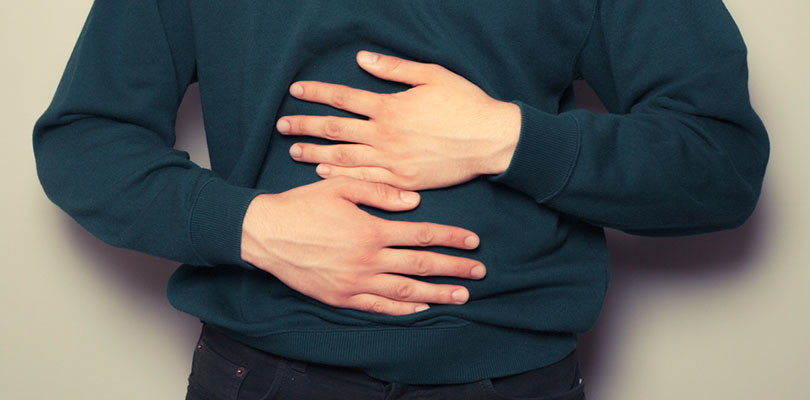Photo Credit: lolostock / iStockPhoto.com
Why Do Our Stomachs Growl?
You had a turkey sandwich on rye and an apple at your noon lunch break. You’ve been guzzling water at your desk all day. However, it is now 3 p.m. and your stomach is growling, causing you to head to the nearest vending machine for your usual afternoon bag of chips and candy bar.
If you’re like most people, you’ve probably not put much thought into why your stomach growls. However, if you’re now wondering why, having an understanding of the anatomy of the gastrointestinal (GI) system is important.
Tracing an Apple Through the GI Tract
Digestion occurs before eating, when smelling the food prior to the first bite. This causes the salivary glands to produce saliva.
Say you’re eating an apple. When the apple is chewed, saliva increases. During chewing, other agents are released that further breakdown the food.
Physical therapy involves improving mobility, reducing pain around the site of injury, avoiding unnecessary surgery, and more.
The apple is then swallowed in the pharynx with the help of the tongue and the soft palate. It is pushed into the esophagus, which uses peristalsis to push the food towards the stomach.
Between the stomach and the esophagus is the lower esophageal sphincter (LES), which opens to allow food to enter the stomach and closes to keep it there.
In the stomach, acids and other enzymes will further digest the apple and it’ll be broken down into a liquid or paste. The food then moves to the small intestines and the portion that cannot be broke down also moves on to be eliminated.
In the small intestine, the apple will continue to be digested by enzymes released by the pancreas and the liver. Nutrients are also absorbed here.
Peristalsis moves the apple through the small intestine and mixes with the enzymes. There are three portions of the small intestine: the duodenum, which breaks down the food, and the jejunum and ileum, which absorb nutrients.
The portion of the apple that cannot be used passes into the large intestine. This leftover material is what we know as stool, which then passes through the large intestine, into the rectum, and finally is eliminated.
So, Why Does My Stomach Growl?
Now that you have a cursory understanding of the digestive system and how digestion occurs, understanding why our stomachs growl will make a little bit more sense.
As it turns out, there can be a variety of reasons for growling stomachs. And most of the time, the growling actually is occurring in the intestines, not in the stomach at all!
There is also a medical term for a growling stomach: “borborygmi.”
Typically, the sound that we hear and associate with a “growling stomach” is actually excess gas in the intestines. This can happen because we swallow too much air from eating too fast, talking and eating at the same time, and drinking fluids while exercising.
When our stomachs growl when we are hungry, it is a bit less clear as to what is causing the growls. One theory is that our blood sugars have decreased, which causes our bodies to utilize fewer nutrients.
The growling is the body’s way of telling us to eat; eating allows the body to take in nutrients, take up space in the digestive system and allow the digestive system to work on breaking down food rather than moving around the excess air.
Another theory, according to the Endocrinology and Metabolism Clinics of North America, is that when we physically feel hunger, hormones are secreted, which sends a signal to the stomach and intestines, causing contractions. These contractions cause the stomach growls we hear.
What Can I Do About a Growling Stomach?
A growling stomach is, to some degree, inevitable. You probably cannot get rid of those embarrassing noises completely. And rest assured, you are not the only person who experiences those loud grumbles.
However, there are a few things that can help to prevent the dreaded stomach grumbles.
Staying hydrated can help, as will eating a high-fiber diet. In addition, eating several small meals and snacks throughout the day instead of three large meals can be beneficial. Smoking and excess alcohol can irritate the stomach, so cessation of both, especially smoking, is recommended.






